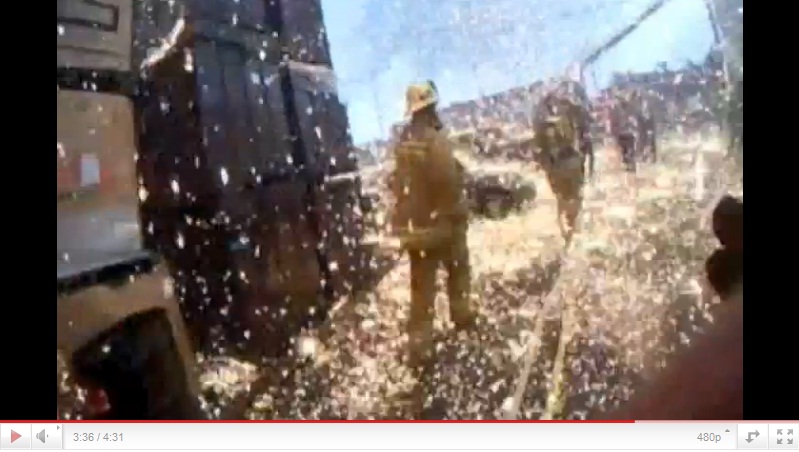More pain in Baltimore: Number of rotating closures reduced, but one engine and two trucks to close permanently.

Fire company locations in Baltimore
Baltimore City Fire Department Chief Jim Clack confirms for STATter911.com this morning they are making three of the five daily rotating closure slots permanent. Engine 14, Truck 15 and Truck 16 are scheduled to shut down on January 1. There will still be two daily rotating closures of fire companies.
The details are outlined in the message below from Chief Clack posted this morning on the forum of the IAFF Local 734 website by its president Bob Sledgeski:
Because I have committed to keeping the entire command staff and both the Union Presidents informed as soon as important decisions are made, I have copied all of you this morning on this very important message from me regarding unit closures for the rest of FY 2010.
1. For the rest of December 2009, we will continue the current practice of up to five rotating closures of fire companies per day.
2. We are going to permanently close Engine 14, Truck 15 and Truck 16 effective January 1, 2010. The personnel assigned to these companies will be reassigned to other companies per the current MOU provisions with the unions. Appropriate notifications will be made as soon as possible (today).
3. There will be some reduction in the number of Emergency Vehicle Operator, Pump Operator, Lieutenant and Captain promotional positions available going forward. We will work with the unions during the next week to come up with the appropriate number for each rated position within the guidelines of the labor agreement. One of the goals in this process will be to avoid reductions in rank if at all possible.
4. We will move Engine 31 down into the quarters of Truck 15 on January 1, 2010 and they will remain running from there until their station is finished.
5. The quarters of Engine 14 will be used for apparatus storage only. No in service fire or medic units will be stationed there. The building will need to be marked appropriately so that residents know the station is out of service.
6. We will still have to accomplish up to two more rotating closures of fire suppression units for vehicle maintenance and overtime control during day works and to reduce the need for overtime during night works. This will maintain our current practice of up to five companies out of service each shift (three “permanent” and two “rotating” closures for the remainder of this fiscal year.
7. We will also continue to relocate companies when a single house is vacant for any reason. Apparatus will not sit outside during the winter months. This restriction will limit the “pool” of available companies for closure and many fire companies will not be participating in the rotating closure plan for this reason.
8. Once Engine 31 goes back into their station around July 1, 2010, the station of Truck 15 will permanently close. The quarters of Truck 15 will also need to be marked appropriately to notify the public at that time.
9. This leaves us with very little room for error in deploying our suppression forces on a daily basis. The Shift Commanders and Battalion Chiefs will need to be more engaged than they ever have been in the minute by minute management of resources on the street.
10. Chief Officers must continue to carefully assess risk to firefighters vs. expected benefits to be gained by interior operations when deploying companies for interior operations at the scene of structure fires. Since there will be less fire companies available on the fire ground within four minutes at fires, it will become necessary to pull companies out of structures quicker than in the past.
11. I also expect that all Incident Commanders will insure that there are always companies available in the staging area near the fire ground for immediate deployment. This will require even quicker declarations of working fires and quicker use of multiple alarms as conditions dictate. The Shift Commander will respond to all working fires and may take command at their discretion.
12. For my part as Fire Chief, I will be working very hard over the next several months to argue that we have done as much as we can do to get the city through the current economic depression and that the fire department very much needs to be spared further cuts to the fire suppression force in FY 2011.
James S. Clack
Fire Chief
Baltimore City Fire Department





